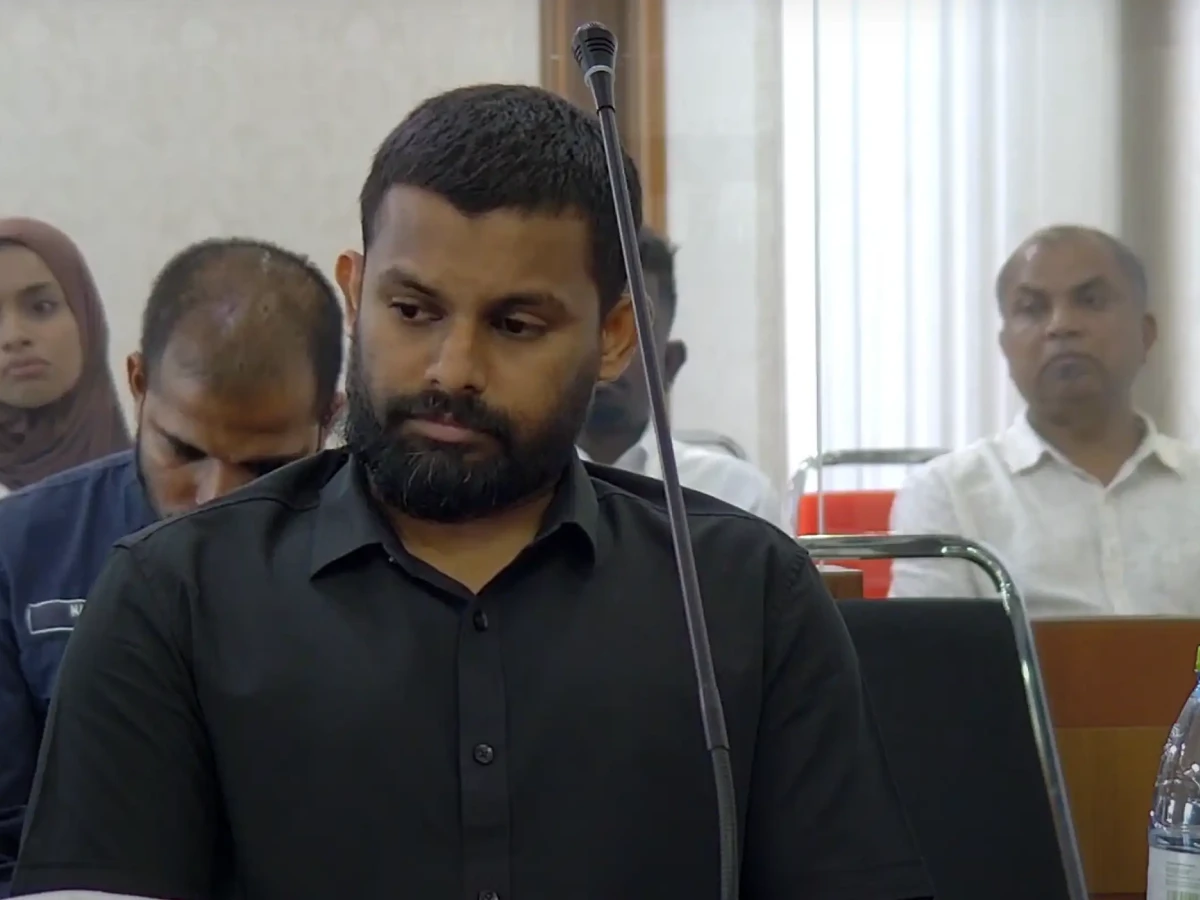
Supreme Court upholds ex-immigration chief's remand
The Criminal Court later issued an order for him to remain in custody until the conclusion of his trial.
Top Stories
-
MP Mauroof released from custody, receiving hospital treatment
-
House floor sinks in Malé during nearby construction work
-
PNF to hold special rally at Artificial Beach on Wednesday
-
MDP MP says Mauroof arrest may breach parliamentary privileges
-
Complaint filed with JSC over judge’s remarks on defence lawyer
The Supreme Court on Wednesday upheld the Criminal Court’s decision to remand former Immigration Controller Shamman Waheed in custody pending trial.
Shamman was arrested on 21 March following a court order and after the seizure of his passport. He was brought before the court the following day and remanded in custody for 15 days. The Criminal Court later issued an order for him to remain in custody until the conclusion of his trial.
The remand orders were appealed by Shamman at the High Court, which upheld the lower court's decision. Subsequently, he filed an appeal with the Supreme Court, requesting the cancellation of the High Court’s decision and immediate release. He also sought to invalidate the High Court’s position allowing police to investigate corruption cases without the involvement of the Anti-Corruption Commission (ACC).
Justice Hussain Shaheed, presiding over the case, ruled that both the initial detention and the remand pending trial were in accordance with the law. Justice Aisha Shujoon concurred with the initial 15-day remand but disagreed with the continued detention, stating there was insufficient evidence that Shamman had influenced witnesses, or that the witnesses were closely associated with him.
However, Justice Abdullah Hameed supported Justice Shaheed’s position, resulting in a majority decision to uphold the remand order.
On the matter of corruption investigations, the High Court had earlier ruled that conducting such investigations without the involvement of the ACC was unlawful. The Supreme Court affirmed this portion of the High Court’s ruling, stating that the relevant section was invalid.
The Supreme Court further noted that a judge can order detention if there is a belief that the accused may influence the investigation, and that there is no legal barrier preventing police from requesting an arrest without ACC involvement.
Shamman faces three charges: abuse of official position, participation in robbery, and money laundering. He is accused of instructing four subordinates on 11 March at approximately 11:30 p.m. to monitor the activities of foreigners without informing the Immigration Department, under whose authority the operation was carried out.




